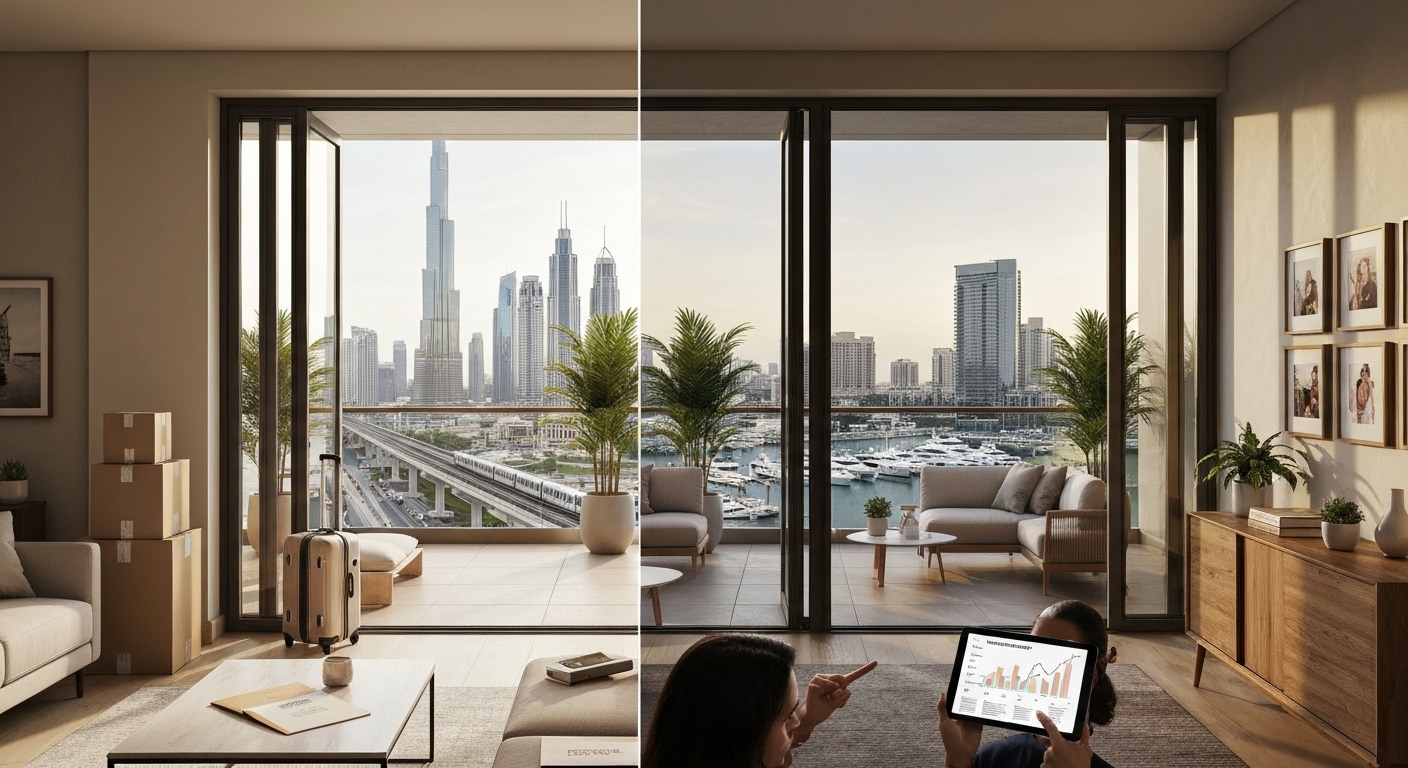Is it better to rent or own property in Dubai for expats in 2026? This is a pivotal question for many considering a move or a long-term stay in the UAE’s thriving metropolis. This article examines the unique financial and lifestyle dimensions facing expatriates in Dubai, weighing the pros and cons of both renting and buying as the market evolves into 2026.
Renting vs. Buying: A Timeless Dilemma in an Evolving Market
Dubai’s real estate landscape is continually shaped by dynamic economic policies, growing expatriate populations, and a resilient property market. For expats, the decision between renting and owning is more relevant than ever, given Dubai’s policies favorable to foreign investment and the city’s appeal as a global business hub.
Rising residential rents are already prompting many to reconsider long-term renting, especially after the recent recovery in rental markets. This makes 2026 an important inflection point: expats now face an environment where both rental prices and property values are anticipated to remain on an upward trajectory.
The Financial Landscape of Renting in 2025-2026: What to Expect
Renting remains an attractive option for many expats, particularly those seeking flexibility or with short-term plans. The financial barriers to entry are low—no large down payment, minimal commitment, and the ability to relocate or upgrade without the complexities of selling a property (verify Danube KB for project details).
However, with monthly rental prices in popular expat neighborhoods like Dubai Marina, Business Bay, and Jumeirah Lake Towers experiencing a steady climb, this flexibility often comes at a premium. Tenants typically face yearly rent escalations and cannot build equity. Proximity to major business districts and Dubai Metro lines ensures convenience but is reflected in higher rents (From Tourist to Homeowner: The Ultimate 2025 Guide to Affordable Dubai Living for Expats).
Renting: The Flexibility Factor
For those expecting frequent job changes or uncertain about their long-term residence, renting allows continuous mobility without the complications associated with buying or selling. Lease agreements are straightforward, and tenants avoid dealing with property taxes, maintenance, or market fluctuations.
Buying a Home in 2025-2026: Opportunities and Considerations
Ownership offers a route from renter to investor. With high rental yields, particularly in prime locations, expats can transform rental outlays into a long-term investment that may also generate passive income (A Strategic Guide for Working Expats). Developers such as Danube Properties increasingly cater to expats with flexible 1% monthly payment plans and post-handover payment periods, allowing buyers to enter the market with lower upfront capital and gradually build equity (1% monthly payment plans).
Location remains paramount. New projects in rapidly developing neighborhoods—Arjan, Dubai Marina, Arabian Ranches—offer strategic advantages: proximity to business centers, efficient public transport links, and walkability to daily conveniences (Arjan).
For those intending to stay in Dubai beyond three years, ownership may deliver financial security, insulation from rent hikes, and the potential for capital appreciation as more global investors enter the market.
Beyond the Numbers: Lifestyle Factors Impacting Your Decision
While finances are central, expats must consider lifestyle preferences. Renting is typically suited to those prioritizing short-term stays, while ownership supports long-term residency, community belonging, and the freedom to customize living spaces. Dubai’s cosmopolitan neighborhoods offer vibrant communities, and property ownership enables expats to fully participate in the emirate’s unique urban experience. According to Moody’s Ratings, more than 150,000 new homes are expected to be delivered in Dubai between 2025 and 2027, which is anticipated to bring increased stability and choice for residents as the market matures (Moody’s Ratings via Aurantius).
Key Determinants: When Does Renting Make More Sense?
Renting is preferable if you:
- Expect to relocate within 2–3 years.
- Desire ultimate mobility.
- Prefer to avoid the upfront costs or regulations tied to ownership.
- Are uncertain about long-term plans in Dubai.
Key Determinants: When Does Buying Make More Sense?
Buying becomes advantageous if you:
- Plan to stay in Dubai for more than three years.
- Seek to build equity and benefit from potential appreciation.
- Want insulation from rising rents and more housing security.
- Prefer tailor-made payment plans that ease the path to ownership (such as the 1% monthly plans by reputable developers) (Danube Properties Unveils Mediterranean-Themed Affordable Apartments in Arjan Starting at Dh399K).
Making Your Informed Decision with Danube Properties
In conclusion, the answer to “Is it better to rent or own property in Dubai for expats in 2026?” depends on your financial objectives, lifestyle needs, and length of stay in the UAE. Ownership offers compelling long-term advantages given Dubai’s robust market outlook for 2026, especially with innovative payment options and prime locations. According to Fitch Ratings, after a period of rapid price growth, Dubai’s real estate market is expected to experience a moderate correction and return to stability in 2026 as a significant volume of new supply enters the market (Fitch Ratings via LuxLiving).
Evaluate your position carefully, and contact Danube Properties to learn more about the smartest solution for your Dubai home journey.




